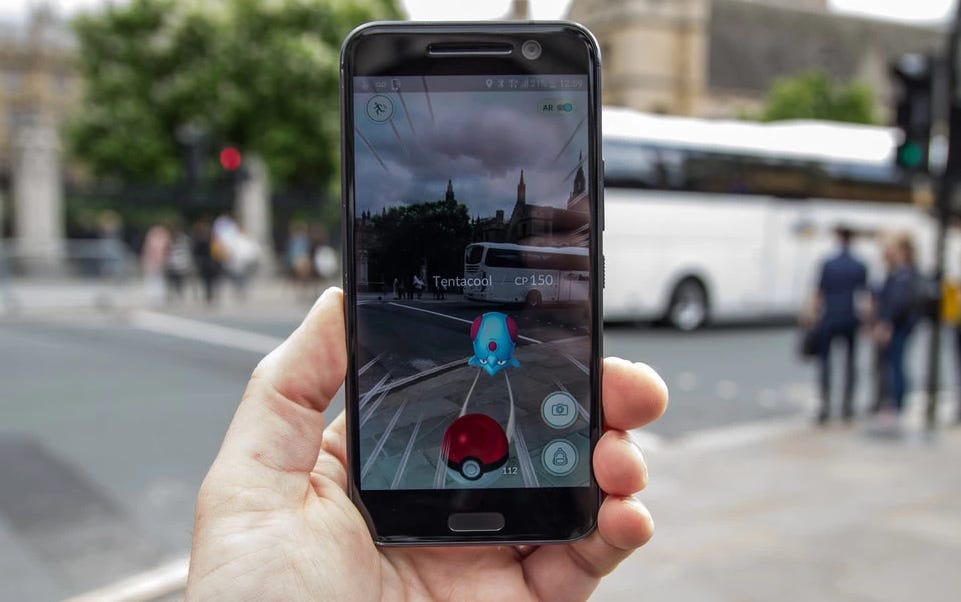Metaverse.EU is a monthly newsletter covering the latest policy, politics and business surrounding the Metaverse in the EU.
Hello and welcome to the inaugural Metaverse.EU! First things first:
What is the Metaverse?
Neal Stephenson coined the term in his 1992 novel, Snow Crash:
“So Hiro's not actually here at all. He's in a computer-generated universe that his computer is drawing onto his goggles and pumping into his earphones. In the lingo, this imaginary place is known as the Metaverse.”
Believers consider the Metaverse to be the next evolution of the Internet, with each iteration bridging the gap between real and virtual worlds. As an infant concept, it will continue to be redefined.
To see why many of today’s products and platforms are considered Metaversy, Matthew Page‘s vision is a good start:
“A massively scaled and interoperable network of real-time rendered 3D virtual worlds that can be experienced sychronously and persistently by an effectiviely unlimited number of users with an individual sense of presence and with continuity of data, such as identity, history, entitlements, objects, communications, and payments”
Meta’s Horizon Worlds is a real-time rendered 3D virtual world, synchronously enjoyed (users interact concurrently). Accessing the platform with VR headsets gives users a sense of individual presence.
Fortnite offers hope for interoperability in the Metaverse. Users can access the game from mobile devices, PCs, and consoles and users to keep their data (avatar’s clothing, accessories and dances) across these platforms.
Pokémon Go’s augmented reality is massively scaled, persistent (the world doesn’t reset), and can host an effectively unlimited number of users.
Image credit: Pocketlint
Into the EU Metaverse
Earlier this year, the European Commission 🇪🇺 announced an initiative on “virtual worlds.”
So it begins. Meta disagrees with the EU 🇪🇺 on centralisation. 🇬🇷 MEP Eva Kaili, Vice-President of the European Parliament, warned the Metaverse should not “recreate centralization,” while Meta’s Aura Salla said consumers will benefit from “one governance.”
Bar none. “Who owns the social contract?”, asked 🇷🇴 MEP Dragoș Tudorache at an event hosted by the Center for Data Innovation on the EU’s approach to the Metaverse. Tudorache also flagged privacy as a priority issue.
Move slow and miss things. The EU 🇪🇺 is struggling to arm itself for the Metaverse. A report by McKinsey also shows that Europe is trailing its competitors on Metaverse-enabling technology, including AI, connectivity, distributed infrastructure and computing.
Regulate first, think later. French Government 🇫🇷 researchers urged lawmakers to hasten regulation to cover Metaverse applications.
Finnish first. Germany 🇩🇪 hosted the European Metaverse Summit & Awards. Sulake, a Finnish 🇫🇮 video games company, won the top prize.
Building blocks. LEGO 🇩🇰 is working with UNICEF to understand the impact of emerging technology on children’s wellbeing. Having announced its partnership with Epic (of Fortnite fame), LEGO is emerging as a Metaverse leader.
Slow fashion. Cartier 🇫🇷 and Gucci 🇮🇹 are amoung the retail brands partnering with TRYO, a virtual try-on platform that consumers can use to simulate wearing garments.
Operational assistance. Immersion, a French 🇫🇷 AV/VR solutions provider, presented a proto-type for AR-assisted surgery.
Virtual haven. Former Czech MP 🇨🇿, Vit Jedlička, now President of Liberland (an undisputed strip of land between Croatia and Serbia), is creating a Metaverse to help house 700,000 people that have applied for citizenship in the “libertarian utopia” (see also: taxes are voluntary in Liberland).
Events
28 Nov – 2 Dec Immersive Tech Week (Rotterdam, The Netherlands)
29 Nov – 30 Nov MetaDays (Paris, France)
10 Dec – 15 Dec Metaverse Safety Week (online)



